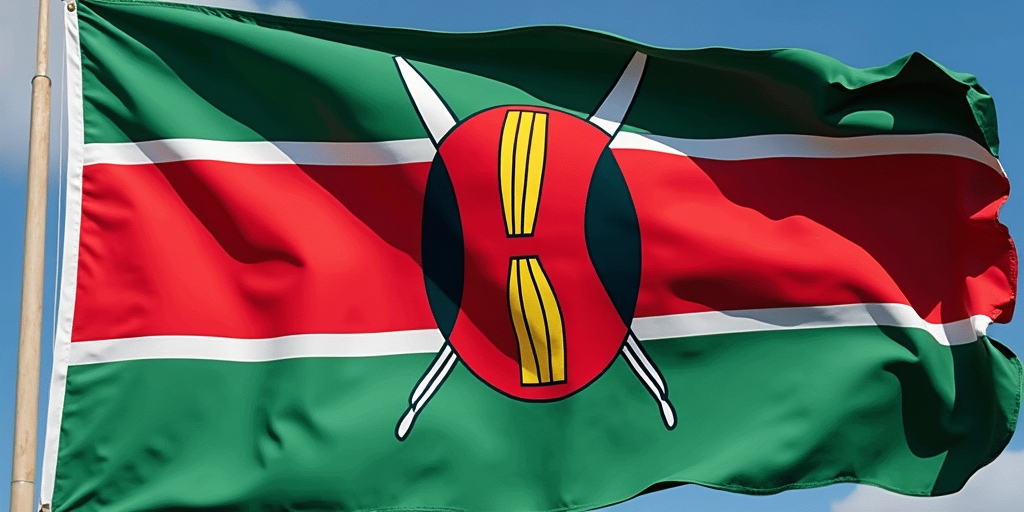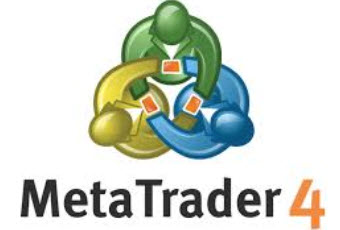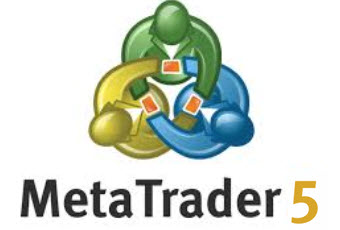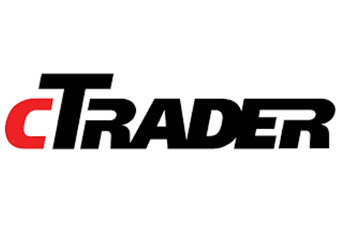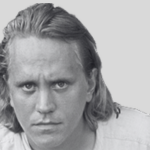

Welcome to our guide to forex trading in Kenya. Here you can learn everything you need to know to start forex trading.
What is Forex Trading?
- Forex trading can generate profit but also carries significant risk of loss.
- Forex trading involves buying and selling currencies on the foreign exchange market.
- Read our Forex trading guide for beginners.
Regulatory Landscape in Kenya
- Forex Trading is LEGAL in Kenya.
- Anyone is allowed to trade. Anyone can trade, but success requires time, skill and strict risk management.
- Trading is Regulated by the CMA
Why is Forex Popular in Kenya
- The Internet, Mobile phones and Desktop computers make it easy to trade.
- Anyone can start trading.
- You can start with little money
How to Start Forex Trading in Kenya
The first step towards starting to trade on the forex market is choosing the right forex broker. You should always choose a broker that offers a free demo account. You will be using that demo account a lot to simulate real trading while you are learning to trade successfully.
When choosing a forex broker, you have three main types of forex brokers to choose from. These are:
- Brokers regulated by the CMA: Usually, the best option for Kenyan forex traders
- Internationally regulated brokers: The second-best option. There are several well-regarded forex brokers who welcome Kenyan traders despite not being regulated by the CMA in Kenya.
- Unregulated Brokers: Unregulated brokers are generally not recommended unless you are an experienced trader who needs features that regulation prevents regulated brokers from offering. Inexperienced traders should always choose a CMA-regulated broker. CMA Will not be able to help resolve conflicts with unregulated brokers.
Below you can find more information about and the best brokers in each of these three categories.

Best International Brokers 2026
The Best Forex Brokers in the world regulated by internationally trusted regulators.
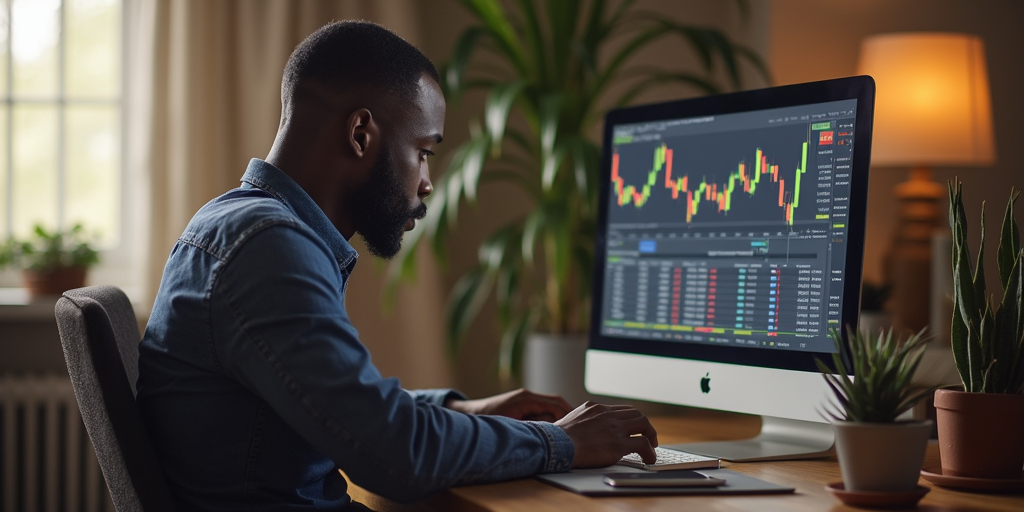
Unregulated Brokers 2026
Unregulated brokers that can offer higher leverage and bonuses than what any regulator would allow them to offer.
Best Forex Brokers
Ranked by CMA licence status, spreads, platform choice and local funding options as well as their reputation among traders, our experiences with the brokers as well as their score on other reputable review sites.
Trading forex/CFDs carries a high risk of loss, and we may receive affiliate compensation from the brokers listed below; please ensure you understand how these products work and whether you can afford to take the risk.
-
#1 Exness
Kenya accepted 🛡 RegulatorsFCA, FSCA, CMA, FSA, CBCS, BVIFSC, FSC, JSC# Assets100+🛠 PlatformsMT4, MT5, TradingCentral🪙 Minimum DepositVaries based on the payment system💹 InstrumentsCFDs on Forex, Stocks, Indices, Commodities, Crypto💲 CurrenciesUSD, EUR, GBP, CAD, AUD, NZD, INR, JPY, ZAR, MYR, IDR, CHF, HKD, SGD, AED, SAR, HUF, BRL, NGN, THB, VND, UAH, KWD, QAR, KRW, MXN, KES, CNY🫴 Bonus Offer-Visit BrokerKenya accepted.
🛡 RegulatorsFCA, FSCA, CMA, FSA, CBCS, BVIFSC, FSC, JSC# Assets100+🛠 PlatformsMT4, MT5, TradingCentral🪙 Minimum DepositVaries based on the payment system💹 InstrumentsCFDs on Forex, Stocks, Indices, Commodities, Crypto💲 CurrenciesUSD, EUR, GBP, CAD, AUD, NZD, INR, JPY, ZAR, MYR, IDR, CHF, HKD, SGD, AED, SAR, HUF, BRL, NGN, THB, VND, UAH, KWD, QAR, KRW, MXN, KES, CNY🫴 Bonus Offer-Visit BrokerKenya accepted. -
#2 IC Markets
Kenya accepted 🛡 RegulatorsASIC, CySEC, CMA, FSA# Assets75🛠 PlatformsMT4, MT5, cTrader, TradingView, TradingCentral, DupliTrade🪙 Minimum Deposit$200💹 InstrumentsCFDs, Forex, Stocks, Indices, Commodities, Bonds, Futures, Crypto💲 CurrenciesUSD, EUR, GBP, CAD, AUD, NZD, JPY, CHF, HKD, SGD🫴 Bonus Offer-Visit BrokerKenya accepted.
🛡 RegulatorsASIC, CySEC, CMA, FSA# Assets75🛠 PlatformsMT4, MT5, cTrader, TradingView, TradingCentral, DupliTrade🪙 Minimum Deposit$200💹 InstrumentsCFDs, Forex, Stocks, Indices, Commodities, Bonds, Futures, Crypto💲 CurrenciesUSD, EUR, GBP, CAD, AUD, NZD, JPY, CHF, HKD, SGD🫴 Bonus Offer-Visit BrokerKenya accepted. -
#3 Ingot Brokers
Kenya accepted 🛡 RegulatorsASIC, FSCA, JSC, FSA, CMA# Assets30+🛠 PlatformsMT4, MT5🪙 Minimum Deposit$10💹 InstrumentsCFDs, Commodities, Stocks, Indices, ETFs, Forex, Cryptocurrencies💲 CurrenciesUSD, AUD🫴 Bonus Offer-Visit BrokerKenya accepted.
🛡 RegulatorsASIC, FSCA, JSC, FSA, CMA# Assets30+🛠 PlatformsMT4, MT5🪙 Minimum Deposit$10💹 InstrumentsCFDs, Commodities, Stocks, Indices, ETFs, Forex, Cryptocurrencies💲 CurrenciesUSD, AUD🫴 Bonus Offer-Visit BrokerKenya accepted.
Other Types of Forex Brokers

ECN Forex Brokers
Forex brokers that provide direct access to the forex market by offering ECN accounts.
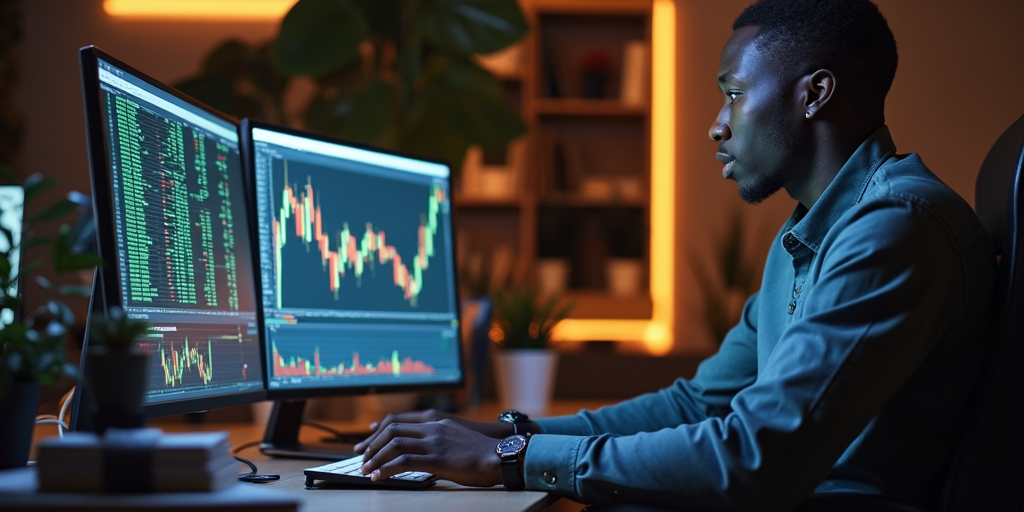
DMA Forex Brokers
Forex brokers that offer DMA accounts give you direct access to the forex market.

Low Minimum Deposit
Forex Brokers with a low minimum deposit allowing you to get started with little money.
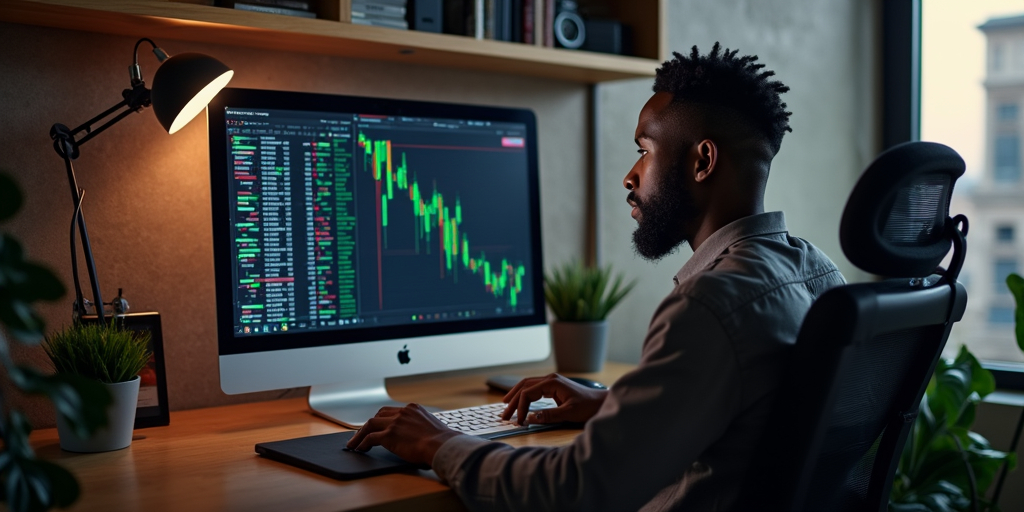
STP Forex Brokers
Forex Brokers that offer STP accounts provide you with quick access to trading pools.

KES Forex Brokers
Forex Brokers that offer accounts in Kenyan Shillings, allowing you to trade in your currency.

Micro Account
Forex Brokers offering micro accounts that allow you to make very small trades.

PAMM Accounts
Forex Brokers offering PAMM accounts for passive investing in the forex market.

M-Pesa Forex Brokers
Forex Brokers that allow you to deposit and withdraw money using M-Pesa.
What to Consider When Choosing a Forex Broker
Choosing which forex broker you want to trade with is an important decision that can have a significant impact on your success as a Forex trader. I can say from personal experience that the wrong broker or the wrong trading software can make it a lot harder to earn a profit. Below I will share some advice that will help you avoid making the same mistakes I did when i first started trading. Advice that can help you avoid costly mistakes that might make you lose interest in what might otherwise become a profitable profession.
Regulation and Safety
The first things you should consider are regulation and safety. Beginner traders should always choose a well-regulated broker with a good reputation on the market. A good, reliable broker will protect your money, handle complaints properly, and keep client funds separate from the company’s own money.
It is generally a good idea to choose a broker that is regulated in the country you live in. In Kenya, this is the Capital Markets Authority (CMA). Kenya is, however, only a minor market for most forex brokers. This means that many of the world’s best brokers still lack CMA certification. Forex traders in Kenya might therefore also want to look at well-regarded brokers regulated by other trusted regulators outside of Kenya. It is never a bad idea to choose a CMA-regulated broker, but you might have to choose a broker that is regulated outside of Kenya to get access to the best possible trading environment.
Avoid any broker that does not clearly lists where they are licensed or that claims to be licensed from an island in the Caribbean. There are reasons that an experienced trader might prefer to choose an unregulated broker (Access to high leverage) but beginner traders should always choose a regulated broker.
Trading Costs
The second thing you should consider is trading costs (Spreads, Commissions, and Fees). You should always look for a broker with the lowest possible trading costs. Spreads and commissions can quickly eat into your profits and make it hard or impossible to make a profit. If you choose a broker with high spreads and commissions, you might end up earning more money for the broker than what you earn for yourself.
Always compare the total cost of transactions. A broker that charges both spread and commission might be cheaper than a Zero-commission forex broker due to the Zero-commission broker charging a higher spread. You want the total cost of each trade to be as low as possible. This is especially important if you think you will make a lot of trades with a low return on each trade. Traders who make fewer transactions with a higher average return are less dependent on low fees. But lower trading costs are always a plus.
Do not focus solely on trading fees. It is also important to check other fees such as withdrawal fees, inactivity fees and deposit charges. Even a small hidden fee can eat into your profits over time. Which fees are most important to you depends on whether you want to use the broker. Inactivity fees, as an example, are only an issue if you think there will be periods when you are inactive. It is common that brokers offer one free withdrawal each month and charge a fee on subsequent withdrawals. These might be an important factor if you think you will withdraw money often.
Financial Instruments & Currency Pairs
Most forex brokers will not provide access to all currency pairs. They will provide a selection of popular currency pairs for you to trade. Some brokers offer a larger selection of currency pairs than others. Make sure that the broker you are considering opening an account with is offering trades in the currency pair or pairs that you want to trade.
If you want to be able to trade with a certain type of currency derivatives, it is equally important that you make sure that the broker you are looking to trade with features trading in that derivative.
Trading Platform
The third thing you should consider is which trading platforms the broker provides you with. Some brokers offer several different options, while others only offer one platform. Your trading platform is your workspace, and it is very important that the forex broker offers a trading platform that you feel comfortable using. The platform needs to be fast, easy to use, and reliable. It has to allow you to make the trades you want to make when you want to make them.
You can read more about different trading platforms, also called trading software, further down on the page. You can also find a list of the best brokers that offer each platform
Minimum Deposits
Different brokers require different minimum deposits when you open an account. Some brokers require a larger deposit to allow you to open an account, while others require amounts as small as KES 1,000–2,000 to open an account. Choose a broker where the amount you want to deposit satisfies the minimum deposit.
Special Account Types
Many brokers offer different accounts. These accounts are designed to suit different traders. Some are designed to suit small traders that want to start trading with a small amount of money while others are designed for more well funded traders. Make sure to choose an account that suits your predicted trading behavior. Choosing an account that is not designed for you might end up being an expensive experience.
Some brokers also offer ECN, STP and PAMM accounts. These are special accounts designed for traders who want direct access to the currency market. These accounts are seldom a good choice for beginners.
Leverage Options
Different brokers offer different leverage. This is often due to some regulators limiting the leverage a broker is allowed to offer to protect the trader. Some brokers offer a maximum leverage as low as 1:30 while other much larger leverage. In Kenya, most brokers offer leverage up to 1:400.
The maximum leverage should not be an important factor in choosing a forex broker if you are new to forex trading. Beginners should not use large leverage as that will amplify both profits and losses. I recommend that a beginner refrain from using large leverage until they get more experienced.
Banking Options
It is important that the broker you choose makes it easy to deposit and withdraw money. Always check that the forex broker allows you to use the banking option you want to deposit and withdraw money. It is not always possible to use all methods for both deposit and withdrawal. In some cases, some methods can only be used for deposits. Make sure you have a method to both deposit and withdraw money before you choose to register with a broker.
In Kenya, it is usually a good idea to look for brokers that accept M-Pesa, Debit/Credit Cards, Bank Transfers and different E-wallets (like Skrill, Neteller).
The best brokers will often offer same-day or one-day withdrawals
Customer Support
Look for a broker that has a reputation for offering good customer service and that makes its customer service easy to contact. Good forex brokers in Kenya generally offer 24/5 or 24/7 support, a live chat option, a local phone number for Kenyan clients and short email response times
The care a broker puts into their customer service gives you an indication of how much care they put into other client services.
Warnings
Finally, I want to provide a few warnings to help you avoid getting scammed.
- Avoid choosing a broker because they offer you a large bonus if you register with them
- Avoid registering with brokers that are being advertised on Youtube, TikTok, Instagram or other social media. A lot of them are scams. Always do your own independent research on websites such as forex.ke before you open an account.
- Never register with a new forex broker that has not been reviewed by review website such as ours yet. You are not getting in early, you are getting scammed. wait until the broker has established themself on the market and earned a good reputation before you register with them.
- Do not registered with a broker because it is recommended by social media influencers and experts. They are getting paid to promote the broker to you and seldom perform the research needed to see if it is a scam or not before recommending it to you. A prime example of this is FTX, which was a huge scam that was recommended by the majority of all large finance influencers on the internet.
How to Open a Forex Trading Account
It is very easy to open an account with a forex broker or other forex trading platform. I will assume that you have already chosen a forex trading platform that suits your needs. All you need to do now is open your account and set it up properly.
1. Choose a Reliable Forex Broker
The first step is to choose a reliable broker, but I will, as I said, assume that you have already done that with the help of the guide above.
2. Visit the broker’s website
Navigate to the website of the forex broker on your computer or on your phone. The easiest way to do this is by clicking the visit links in the lists above.
3. Click to open an account
Click the button to open an account. This button usually says Open an account, Join, Get started, Start trading or something similar.
The order of the following steps can vary a little between different brokers. Do not get confused if the steps are not exactly the same when you try to open an account. Read through all the steps below, and you should find the step you are on at your broker.
4. Pick Your Account Type
Brokers usually offer different account types like the ones listed below. Choose the account type you want. Please note that the account types listed below are only examples. The types of accounts your broker might have are different. Always read about each type and choose the one that suits you best.
- Standard Account: Good for regular trading.
- Micro or Cent Account: Great for beginners who want to start small.
- ECN Account: For experienced traders who want direct market access and very low spreads.
5. Complete the Registration Form
Fill in your basic details: name, email, phone number, and country of residence. Most brokers also ask a few questions about your trading experience to comply with regulatory requirements.
6. Verify Your Identity (Not always required)
You’ll usually need to verify your account. Some brokers do not require this, but if they do, then that is a warning flag since most, if not all, reliable brokers do. The documents you will need to upload are usually:
- A government-issued ID (passport, ID card, or driver’s license)
- Proof of address (utility bill, bank statement)
This step helps protect you and prevent fraud. You will need to provide this information to withdraw money, even if the broker does not require it for you to open an account and deposit money into it.
7. Wait to get verified
Verification is usually not instantaneous; it can take anywhere from a few minutes up to 24 hours. In rare cases, it might take longer. Use the time to learn more about forex trading and analysis.
8. Fund Your Account
Once you’re verified, it’s time to deposit money. Most brokers accept cards, bank transfers, and e-wallets like Skrill or Neteller. How long it will take before the money is available in your account depends on what payment method you use. Some are instant, while others might take a few minutes up to several days.
9. Download the Trading Platform
Once your account is set up and funded, it is time to download and install the trading platform you want to use on your phone and/or computer. Some brokers offer only one platform, but it is also common for brokers to offer more than one platform. Most forex brokers offer MetaTrader 4 (MT4) and/or MetaTrader 5 (MT5), but there are other good platforms as well..
Once the software is installed, you can log in with the login information from the broker.
10. Set up your demo account and practice.
I highly recommend that you set up a demo account and use that to simulate forex trading before you start trading using real money. This is not strictly necessary, but highly recommended as it will increase your chance of becoming successful. Set up the demo account to simulate your real account. Make the same trades you would if you used your real account, and do not risk real money until you become more skilled..
Trading Software
A good trading software is required to be able to trade successfully on the forex market. Below, you will find info about the trading software I have personally used and that I, as well as most other traders, find to be the best forex trading software in the world.
If you want to trade in your mobile, you will need to trade using software that offers a mobile trading app for Kenyan traders
Benefits & Opportunities of Forex Trading
Benefits
- Low Barrier to Entry: You don’t need a lot of money to start trading. Many brokers offer micro accounts for beginners.
- High Liquidity: Forex is the biggest market on earth and offers unparalleled liquidity.
- Flexible Trading Hours: Trade whenever you want. The market is always open.
- Leverage: Forex brokers offer leverage. Leverage lets you make bigger trades than you would otherwise be able to make.
Opportunities
- Currency Volatility: The high volatility of the market gives constant opportunities to make money.
- Profit in Rising or Falling Markets: You can make money on all market movements, up or down.
- Bonuses: Some brokers give you a bonus when you open an account,t providing you with more money to trade with.
- Technology: Mobile apps and advanced trading platforms from forex brokers make it easy to trade anywhere in Kenya.
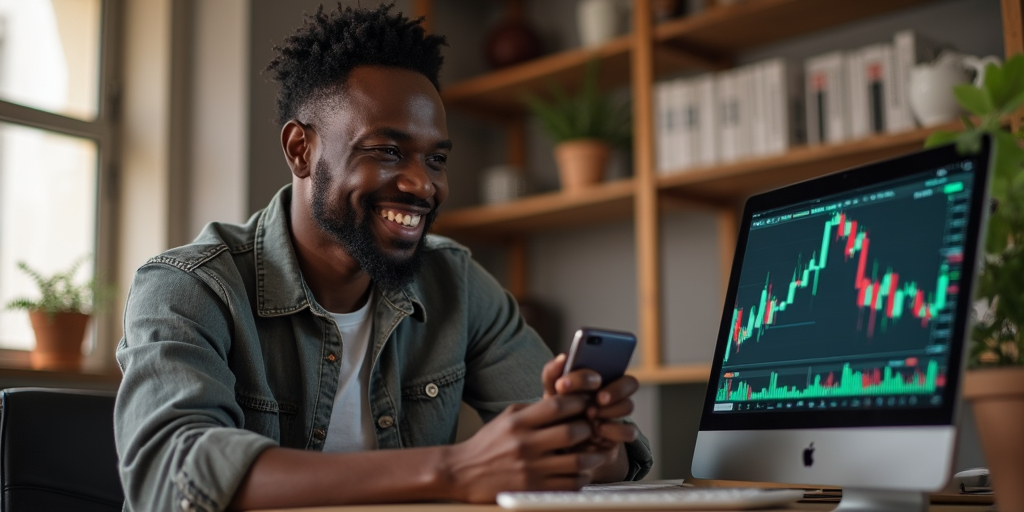
Challenges & Risks for Kenyan Forex Traders
Challenges
- Market Volatility: Currency prices can swing hard and fast. This can cause large losses (And profits) if you trade using leverage,
- Over trading: Jumping into too many trades without a clear strategy.
- Emotional Trading: Fear, greed, and other emotions can quickly cause large losses.
- Technical Failures: Weak trading platforms or poor internet connections can make you lose trades that otherwise would have been profitable.
Risks
- Leverage Risk: Forex brokers offer high leverage. High leverage will boost profits, but also increase losses when you get things wrong.
- Unregulated Brokers: There are plenty of low-quality, dishonest brokers and trading platforms that want to scam you out of your money. Always choose a reliable broker.
- Other scams: The forex market is full of people trying to sell you scam products such as forex signals and guaranteed trading systems. Do not fall for it. They are all scams.
- Lack of Knowledge: Jumping into forex too early without fully understanding the in and outs of forex trading and its risks can cause large losses.
Forex Trading Strategies for Kenyan Traders
There are many different strategies, or types of trading, that you can engage in on the forex market. All of them can be profitable. They all require different degrees of dedication and suit different types of traders. What is true for all of them is that the result will vary greatly depending on how much effort and discipline you apply to your forex trading.
Some of the most common forex trading strategies are:
- Trend Trading: This is the easiest strategy to use and does not require extensive knowledge. Trend following simply means that you follow the trend and make trades that assume the trade will continue. If the market’s going up, you assume it will keep going up; if it’s going down, you assume it will keep going down. In both cases, you make trades that will be profitable if the trade continues. There are tools like moving averages that can help you spot the trend and ride it.
- Range Trading: Range trading works best when a currency pair is calm and stays flat while moving up and down within a small, limited range. Range trading is when a traders buy near the bottom of the range in the hope that it will bounce up again and then close the position near the top of the range. The trader then takes a put (bear) position to profit when the value falls toward the lower limit of the range again. The trade can repeat this as long as the currency pair stay within the range .
- Breakout Trading: This is a trading style that requires more patience. In this case, the trader has to wait until the market conditions are correct before entering a position. Breakout trading sees the trader waiting for a currency pair to “break” through a support or resistance level before making a trade. Once a support or resistance is broken, it is common for a currency pair to make a larger movement. The goal of a breakout trader is to jump in early and profit from this movement. Breakout trading requires a good understanding of technical analysis.
- Swing Trading: Swing trading is a less active type of trading. The goal of swing traders is to profit from larger price movements taking place over several days or even weeks. They avoid chasing small movements in the markets and instead try to predict larger swings. It is less stressful and requires you to be less active as a trader. Swing trading on the forex market is more dependent on fundamental analysis and less dependent on technical analysis.
- Scalping Trading: Scalping is in many ways the opposite of swing trading. Scalping involves trying to profit from super-fast trades to make a profit from tiny movements in the market. A scalper makes hundreds or even thousands of small trades every day, trying to make a small profit on every trade. Scalping requires you to stay very focused while trading and also requires you to have a very fast internet. I generally do not recommend scalping trading to Kenyan traders. It will always be impossible to beat large trading firms that have super fast internet and large dedicated trading computers. It is not impossible to make money as a small-scale scalper. The effort required is disproportionate to the profits made. Most traders are better off choosing another trading style.
- News Trading: News trading is a type of trading where you trade based on news releases such interest rate decisions to profit from the large market swings these can cause. It requires you to act very quickly and in today’s connected world it can be hard to make large profits from news trading. Most of the profit will be scoped up by large traders and funds with super fast connections to the market.
None of these strategies will guarantee success, and you might find success using your own strategy that combines elements from several of these strategies. They will, however, give you a place to start when you start developing your trading strategy.
Using Fundamental & Technical Analysis
Fundamental analysis and technical analysis are essential tools that most (and all successful) forex traders use. Each of these two types of analyses gives you a different view of what’s really going on with a currency pair. Each of these two types is suitable for different trading strategies. Below, I am going to give you a short introduction to fundamental and technical analysis. I will explain what they do and when they are used. I strongly recommend that you study both types of analysis in depth before you start trading..
Fundamental Analysis
Fundamental analysis looks at the real-world reasons behind why a currency pair is moving in one direction or the other. It focuses on real-world indicators and fundamental analysis requires you to stay up to date with global financial news. Fundamental analysis looks at factors such as Interest rates, Inflation, Employment numbers, central bank decisions, Import/Export numbers, Political stability in one or both of the countries represented in the currency pair, and so on. In short, it analyses how the economy in one of the represented countries is developing in comparison with the other.
As an example, if Kenya’s central bank raises interest rates, the Kenyan shilling might strengthen against other currencies because higher rates attract investors.
Traders using fundamental analysis watch news reports, economic calendars, and government announcements to stay ahead of the market.
Technical Analysis
Technical analysis will to the common man seem more distanced from reality. It does not look at what happens in the real world. Technical analysis instead focuses entirely on what happens on the market. How has the price developed historically, and how does the price chart look at this very moment? Technical analysis looks at things like support and resistance levels, chart patterns and Indicators (like RSI, MACD, moving averages) to predict the future market movements.
Technical analysis believes that all news and opinions will already be baked into the price, and the best way to predict future price movements is to look at past market movements.
A lot of traders use technical analysis which improves the accuracy of technical analyses. A lot of traders act like a certain thing is going to happen which in turn can cause that thing to happen. Technically analyses will to a certain degree both predict and control future market movements as long as no outside factor such as new news affect the market.
Neither fundamental nor technical analysis is correct all the time. Both types of analysis have their strengths and weaknesses. Neither guarantees success. This is why most successful traders use both types of analysis. They use fundamental analysis to understand and predict the macro trend and technical analysis to time their trades better. They will also know how to rely on the type of analysis that is best in the current market situation. Fundamental analysis is more important on a news-heavy day as technical analysis can cause large losses. Technical analysis is often better on calm days with no news that can affect the market.
I strongly recommend that you take the time to learn both types of trading.
Managing Risk & Becoming a Profitable Trader
Risk Management
Risk Management is essential if you want to become a successful forex trader. If you are unable to manage risk, you will end up losing money no matter how good your strategy is. Risk management is about protecting your trading account from big hits, so you can survive bad days and stay in the game. Forex trading is skill-based, but luck will always play a part in the outcome. Risk management is about eliminating the effect of luck over time.
Here’s how forex risk management works:
- Risk Only a Small % Per Trade: Most smart traders risk 1–2% of their total account per trade. In my opinion, this is too much. Risking no more than 0.5% per trade will give you a much better chance of becoming successful. This way, even a losing streak won’t wipe you out. If your account is $1,000, risk $5 per trade, not more.
- Always Use a Stop-Loss: A stop-loss automatically closes your trade if it moves too far against you. It’s your seat belt in a car crash that limits your downside. You should never make trades without a stop-loss.
- Plan Your Take-Profit Levels: Don’t just hope trades will “keep running.” Decide ahead of time where you’ll take your profits and lock them in.
- Mind Your Leverage: Just because your forex broker offers 1:400 leverage (the CMA maximum) doesn’t mean you should use it. High leverage turns small mistakes into big losses. Keep it small and manageable. I recommend that all beginner traders avoid high leverage. Use 1:30 or less until you become a more experienced and successful trader.
- Do not diversify Your Trades: This is not stock trading. Do not try to diversify your trading. Focus on one or a couple of currency pairs and give them your full attention. Forex trading is all about knowing when to enter and exit the market. It is better to be an expert in one currency pair than an intermediate in many.
Good risk management is what keeps traders alive long enough to actually grow their accounts.
Psychology of Forex Trading
Forex trading isn’t just about numbers and charts — it’s a mental game too. Even the best strategies fall apart when emotions like fear, greed, or frustration take over. Successful traders aren’t just skilled — they’re disciplined, patient, and good at controlling their reactions under pressure.
Discipline is, more than anything, what separates successful traders from failing traders. Without discipline, even the best trading strategy falls apart. Building real discipline isn’t magic — it’s all about building simple habits that you actually stick to every day. The longer you stick to them, the easier it will become to stay disciplined.
Here’s what works:
- Create a Solid Trading Plan. Set clear rules for when you enter and exit trades, how much risk you are willing to assume, and when you walk away. No guessing mid-trade. If it’s not in your plan, don’t do it.
- Trade Smaller Than You Want To: Risking too much makes you emotional. Keeping your position size small means you can stick to the plan without freaking out when trades go against you. Never bet more than 0.5% of your portfolio on one trade. Many “professionals” will tell you to bet 1-2% a trade but this is too much for most traders.
- Set Daily Limits: Decide ahead of time how many losing trades you’ll take and how much you’re willing to lose in one day. If you hit the limit, shut it down. Protect your mind and your money.
- Review Every Trade: After every trading session, you should review your trading. Look back at every trade you did. Where did you stick to your plan? Where did you slip? Honest self-reflection builds discipline way faster than pretending every trade was “just bad luck.”
- Accept Losing Trades: Everyone makes losing trades — even the most successful traders. Discipline is about taking small losses without changing your whole plan out of frustration or fear.
This article was last updated on: October 15, 2025
